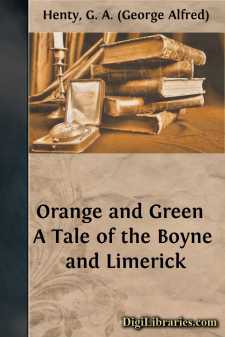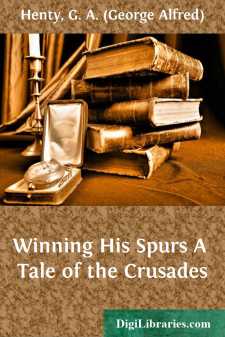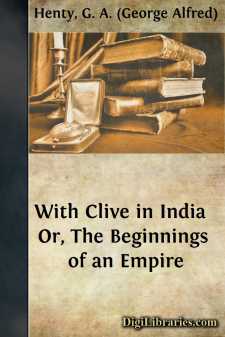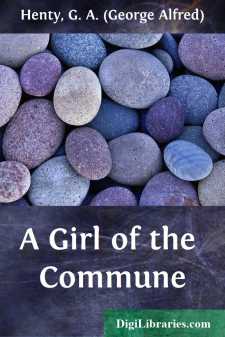Categories
- Antiques & Collectibles 13
- Architecture 36
- Art 48
- Bibles 22
- Biography & Autobiography 813
- Body, Mind & Spirit 142
- Business & Economics 28
- Children's Books 17
- Children's Fiction 14
- Computers 4
- Cooking 94
- Crafts & Hobbies 4
- Drama 346
- Education 46
- Family & Relationships 57
- Fiction 11829
- Games 19
- Gardening 17
- Health & Fitness 34
- History 1377
- House & Home 1
- Humor 147
- Juvenile Fiction 1873
- Juvenile Nonfiction 202
- Language Arts & Disciplines 88
- Law 16
- Literary Collections 686
- Literary Criticism 179
- Mathematics 13
- Medical 41
- Music 40
- Nature 179
- Non-Classifiable 1768
- Performing Arts 7
- Periodicals 1453
- Philosophy 64
- Photography 2
- Poetry 896
- Political Science 203
- Psychology 42
- Reference 154
- Religion 513
- Science 126
- Self-Help 84
- Social Science 81
- Sports & Recreation 34
- Study Aids 3
- Technology & Engineering 59
- Transportation 23
- Travel 463
- True Crime 29
Orange and Green A Tale of the Boyne and Limerick
Categories:
Description:
Excerpt
Chapter 1: A Shipwreck.
A few miles to the south of Bray Head, on the crest of a hill falling sharply down to the sea, stood Castle Davenant, a conspicuous landmark to mariners skirting the coast on their way from Cork or Waterford to Dublin Bay. Castle Davenant it was called, although it had long since ceased to be defensible; but when it was built by Sir Godfrey Davenant, who came over with Strongbow, it was a place of strength. Strongbow's followers did well for themselves. They had reckoned on hard fighting, but the Irish were too much divided among themselves to oppose any serious resistance to the invaders. Strongbow had married the daughter of Dermid, Prince of Leinster, and at the death of that prince succeeded him, and the greater portion of Leinster was soon divided among the knights and men-at-arms who had followed his standard. Godfrey Davenant, who was a favourite of the earl, had no reason to be dissatisfied with his share, which consisted of a domain including many square miles of fertile land, stretching back from the seacoast.
Here for many generations his descendants lived, for the most part taking an active share in the wars and disturbances which, with scarcely an interval of rest, agitated the country.
The castle had continued to deserve its name until forty years before the time this story commences, when Cromwell's gunners had battered a breach in it, and left it a heap of smoking ruins. Walter Davenant had died, fighting to the last, in his own hall. At that time, the greater part of his estate was bestowed upon officers and soldiers in Cromwell's army, among whom no less than four million acres of Irish land were divided.
Had it not been that Walter Davenant's widow was an Englishwoman, and a relation of General Ireton, the whole of the estate would have gone; but his influence was sufficient to secure for her the possession of the ruins of her home, and a few hundred acres surrounding it. Fortunately, the dowry which Mrs. Davenant had brought her husband was untouched, and a new house was reared within the ruins of the castle, the new work being dovetailed with the old.
The family now consisted of Mrs. Davenant, a lady sixty-eight years old; her son Fergus, who was, when Cromwell devastated the land, a child of five years; his wife Katherine, daughter of Lawrence McCarthy, a large landowner near Cork; and their two sons, Walter, a lad of sixteen, and Godfrey, twelve years old.
Two miles west of the castle stood a square-built stone house, surrounded by solidly-constructed barns and outbuildings. This was the abode of old Zephaniah Whitefoot, the man upon whom had been bestowed the broad lands of Walter Davenant. Zephaniah had fought stoutly, as lieutenant in one of Cromwell's regiments of horse, and had always considered himself an ill-treated man, because, although he had obtained all the most fertile portion of the Davenant estate, the old family were permitted to retain the castle, and a few hundred acres by the sea.
He was one of those who contended that the Amalekites should be utterly destroyed by the sword, and he considered that the retention of the corner of their domains, by the Davenants, was a direct flying in the face of the providence who had given them into the hands of the faithful....












